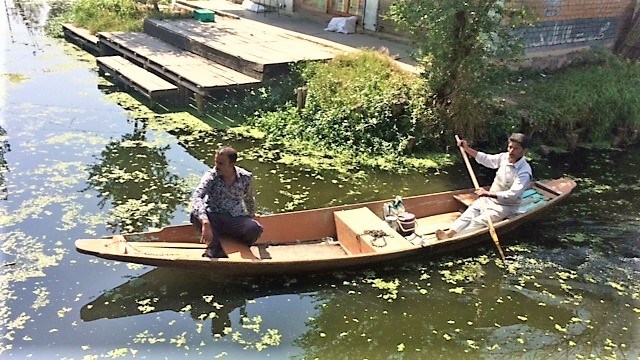In an earlier article that traces the gradual but unchecked degradation of the Dal Lake in Kashmir, it had been pointed out that as early as 2009, the Jammu and Kashmir Pollution Control Board had drawn attention, in a report, to the lake pollution created by the houseboats which have been traditionally been tourist favourites.
The second largest lake in Kashmir, Dal Lake has four basins: Gagribal, Lokut Dal, Bod Dal and Nagin. According to studies, Lokut Dal and Bod Dal receive about 97,000 kg of sewerage every day!
Ghulam Mohammad Itoo, a resident of Rainawari, shares that “The strong stench is making life unbearable for people living here.”
Prof. Shakeel Rhomsoo at the University of Kashmir says untreated sewerage has destroyed the lake more than anything else.
Research shows…
Sources: Water Quality Assessments of Dal Lake, Jammu & Kashmir, Dec 2017 | Status of Pollution Level in Dal Lake of Jammu and Kashmir – A Review, Dec 2017 |
Through the lens of houseboat owners
‘Rehabilitation and realignment of houseboats’ is not the final solution for saving Dal Lake of Srinagar, Kashmir rues the head of the Houseboat Owners’ Association, Tariq Patloo.
Patloo, who has been campaigning for saving Dal Lake under the banner ‘Mission Dal Lake’ for more than 20 years now, says that it is the collective failure of all those people who are directly or indirectly linked with the lake.
“We (the houseboat owners) are ready to move to ‘Dole Demb’ (a project which was initiated with the aim to shift all houseboats at one place of the lake but to this date, no such progress has been made) but the question is, will it save the lake?” asks Patloo.
He also pointed to the fact that untreated sewerage has been a major cause for the lake’s damage, besides illegal constructions and choking of interior veins of the lake.
Many local houseboat owners say that rising pollution and discharge of sewage into the lake from Rainawari and Babdem localities are an impediment to its conservation. They concur that tourist inflow has been affected due to the unsanitary conditions of the lake. No one wants to stay in the houseboats any more, as the surroundings are unpleasant.

The flora and fauna that once thrived in the lake have been destroyed and the lake is now infested with weeds, leading to a dip in tourist footfall, lament boat owners. Pic: Nusrath Sidiq
Patloo rued that around 80 pumping stations in Srinagar city are not only killing the Dal, but are slowly poisoning other waterbodies too. “The pollution and the discharge of untreated effluents besides encroachments have contaminated the lake. The flora and fauna that once thrived in the lake has been destroyed and the lake is now infested with weeds,” he observes. His recommendation: Stop all encroachments and take legal action against violators, whoever they may be.
For others less familiar with technicalities — the houseboat owners, vegetable sellers or shikarawalas — it is an existential issue. The Dal is not merely synonymous with Kashmir, but with life itself. “The Lake is dying and so are we,” says Mohammad Akram, a shikarawala.
This is not a big problem now for some peoples but it will became big if no one will take action on it dal lake is the beauty of kashmir but people who visit there who lives there they are throwing garbage in the dal lake goverment have to take action it so that we can stop increasing polluted water of dal lake.